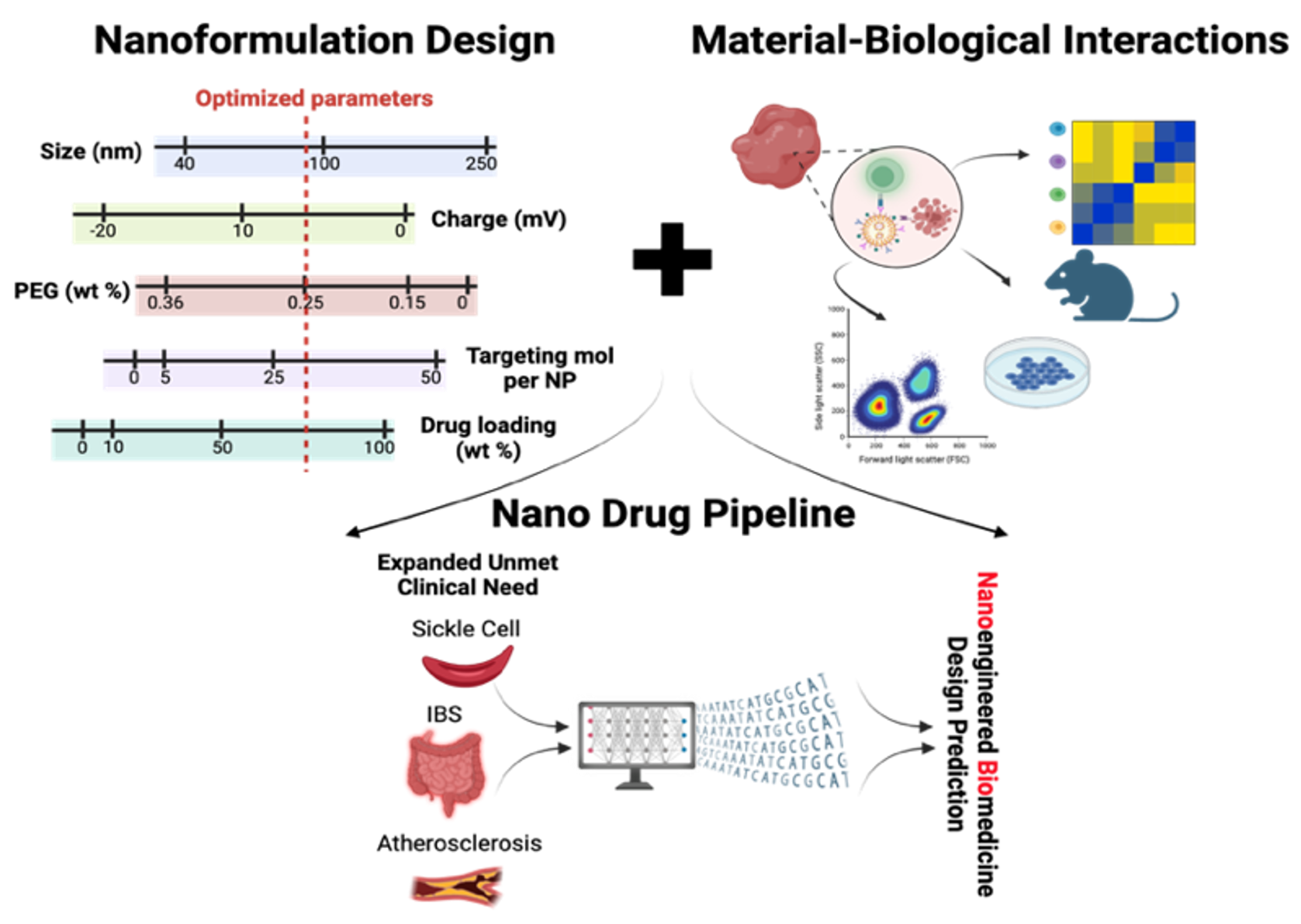The NanoBio Lab is centered around understanding and leveraging inherent material-biological interactions to design next-generation nanomaterial drug delivery systems. We know that nanoscale materials take on unique, size-dependent characteristics that differ from their bulk counterparts, however, given the complexity of parameters within the nanoscale (e.g. size, shape), very little is known about how modulating these factors can alter their biological interactions. A common challenge with translation of nanoparticles is the discrepancy between the predicted response and the experimental outcome. Rationale design of next-generation nanodrug systems relies on understanding the dynamic forces and molecular components that alter the physiochemical identity of our nanoparticle.
As a nanoformulation researcher Dr. Brown has spent her career designing nanomaterials to overcome biological barriers and improve clinically relevant disease response. Although each project brought on its own unique challenges, a common struggle was accurately predicting response solely based on material physiochemical properties. Particles that had seemed to have the same characteristics completely changed biodistributions or altered tumor immune cell infiltration for no obvious reason. To tackle and better predict response, the NanoBio lab proposes to study these nanomaterial-biological interactions in a systematic approach with the goal to create a pipeline for nanoengineered biomedical solutions that will expand therapeutic options to previously unattainable patient populations.

The NanoBio lab has three key thrusts:
The NanoBio lab is suported by:

